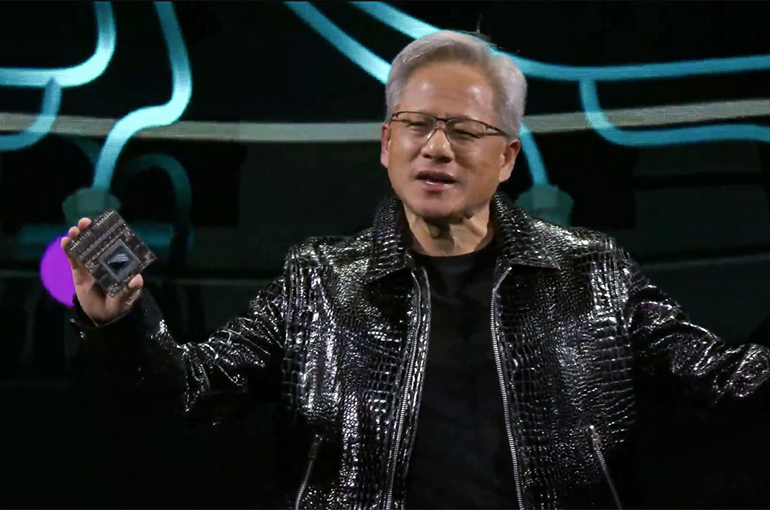 Nvidia Is Developing World’s Smallest AI Supercomputer, Founder Says
Nvidia Is Developing World’s Smallest AI Supercomputer, Founder Says(Yicai) Jan. 7 -- Nvidia is developing the world’s smallest artificial intelligence-powered supercomputer, the founder of the US chip giant said in his keynote speech at the Consumer Electronics Show yesterday during which he revealed a number of the firm’s new products.
The supercomputer, called ‘Project Digits,’ will be equipped with Nvidia’s super chip GB10 and will offer a petaflop of computer power in compact form, Jensen Huang, who is also chief executive officer of the Santa Clara-based company, said at the tech trade event in Las Vegas. Jensen also talked about Nvidia Cosmos, a platform designed to accelerate physical AI development.
It is expensive to develop physical AI models as they require extensive real-world data and testing, Huang said. Through the Cosmos platform, developers can generate physics-based videos from inputs such as text, images and videos, along with combinations of robotic sensor and motion data. These models can simulate industrial environments, such as warehouses or factories, and driving conditions, such as various road scenarios.
The Cosmos models are available under Nvidia’s open model license, Huang said. Figure AI, a humanoid robot company backed by Nvidia, and electric car startup Xpeng Motors are among the first users of Cosmos.
Nvidia is linking arms with Japanese auto manufacturer Toyota Motor to develop the next generation of self-driving cars, Huang said. This should be the next trillion-dollar market, he added.
With regard to robots, Nvidia has said before that it does not intend to compete directly with manufacturers such as US electric car giant Tesla, but instead aims to provide "foundry services" to automakers.
Last year, Nvidia significantly ramped up its venture capital investments, pumping as much as USD1 billion into AI startups across 50 rounds of fundraising, compared with 39 last year. The company's spending on acquisitions was more than in the past four years combined.
Nvidia opened its second office in Beijing in November last year. The firm’s China office has been actively hiring and as of December had expanded by several hundred people from a year earlier to a headcount of 3,600. The new members of its research and development team are working in fields such as autonomous driving and robotics and much of the R&D is aimed not only at China but also at the global market.
Editor: Kim Taylor